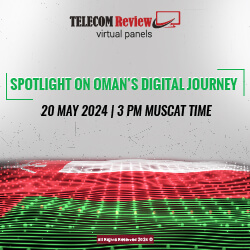By Dr. Abdulrahim Al-Hour, Experienced Journalist, Academic and Economic Expert
Artificial intelligence (AI) is transforming our world in unprecedented ways. From healthcare to education, business to entertainment, AI is reshaping how we live, work and play. But as AI becomes more powerful and pervasive, it raises serious ethical questions that we cannot ignore.
AI has the potential to make our lives better, but it also poses risks to our fundamental values, such as fairness, human rights and privacy. For example, AI is increasingly used in judicial systems worldwide, where it can help with decision-making, legal research and litigation. But AI can also be biased, opaque and intrusive, undermining the trust and legitimacy of the justice system. That's why organizations like UNESCO have proposed a global standard-setting instrument on the ethics of AI to ensure that AI respects human dignity and serves the common good.
A global AI race has thus emerged, aimed at developing and deploying AI applications on the one hand and setting the rules and norms that govern them on the other. China, for instance, is rolling out some of the world's earliest and most detailed regulations for AI, especially for generative AI, the technology that powers OpenAI's ChatGPT and Google's Bard chatbots. Meanwhile, the EU proposes a comprehensive AI law to protect fundamental rights and ensure human oversight of AI. AI regulation in the US is still in its preliminary stages, with no federal legislation dedicated to AI yet.
The stakes are high, as AI will have a substantial economic impact in the coming years. According to a PwC study, AI could boost global GDP by 14% by 2030, with the greatest AI-powered economic gains being in China (26% boost to GDP in 2030) and North America (14.5% boost), equivalent to a total of $10.7 trillion and accounting for almost 70% of the global economic impact.
China is determined to become a world leader in AI. The Chinese government has invested heavily in this technology to become a world leader by 2030. The country is also home to some of the world's biggest and most innovative AI companies.
For example, the Chinese technology giant Huawei is exploring AI innovations in various domains, such as telecommunications, cloud computing and consumer electronics. Huawei is also promoting AI education and talent development and collaborating with top universities and research institutes to advance the field of AI. The company has established several AI research centers worldwide, collaborating with top universities and research institutes to advance the field of AI and develop innovative technologies.
One of Huawei's remarkable achievements in AI is its contribution to pharmaceutical R&D and new drug discovery. Last year, Huawei's Rotating Chairman, Ken Hu, revealed how an AI-aided drug design service powered by Huawei Cloud helped a team of researchers from Xi'an Jiaotong University develop a new broad-spectrum antimicrobial drug in just one month, reducing R&D costs by 70%. This is a remarkable feat, considering it usually takes over $1 billion and 10 years to bring a new drug to market.
AI can also help us tackle one of humanity's biggest challenges: climate change. Extreme weather events are becoming more frequent and intense, threatening lives and livelihoods worldwide. We, therefore, need better techniques to predict, prepare for and mitigate their impacts. A whitepaper by IDC and Baidu estimates that AI technology can contribute up to 70% of carbon emissions reductions by 2060. AI's environmental capabilities go further and can help reduce greenhouse gas emissions, transition to a low-carbon economy and much more.
Huawei Cloud recently published a paper on the Pangu Weather AI model in one of the world's top scientific journals, Nature. The paper describes the process of developing a precise and accurate global AI weather forecast system based on deep learning using 43 years of data. Pangu-Weather is the first AI prediction model to demonstrate higher precision than traditional numerical weather forecast methods. The model enables a 10,000x improvement in prediction speed, reducing global weather prediction time to seconds.
The Pangu-Weather model demonstrated higher precision during scientific trials than traditional numerical prediction methods for forecasts covering 1 hour to 7 days. The model can accurately predict, in a matter of seconds, fine-grained meteorological features, including humidity, wind speed, temperature, and sea level pressure.
In May 2023, Typhoon Mawar was recorded as the world's strongest tropical cyclone of the year thus far. According to the China Meteorological Administration, Pangu-Weather accurately predicted the typhoon's trajectory five days before it changed course in the eastern waters of the islands of Taiwan.
In the Middle East, Qatar is at the forefront of countries adopting trailblazing technology and integrating artificial intelligence in line with Qatar National Vision 2030. The country's priority is to nurture broad AI ecosystems built on public-private partnership models to boost AI joint efforts that can accelerate AI research, establish regulations, cultivate talent, and empower growth and development in all verticals and sectors.
AI is not just a technology but a social phenomenon affecting us all. We have the opportunity and the duty to shape its future in a way that benefits humanity as a whole. Let's not waste it.










